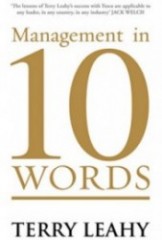Have you ever had a boss who is so fussy about time? He will tell you off for being five minutes late for meetings and would abruptly end the conversation once the allotted time for the meeting is over.

Have you got friends or family who despite your pressuring them for the specific time they will arrive at your house will not commit themselves to anything other than to say, ‘see you on Saturday night’?
We all perceive and prioritise time differently. Our time sense can be poles apart and yet we have to get along well with one another.
Today I will be talking about two different ways in which people are known to see time and organise their schedule. I will use two different words to represent these and I will tell you why you need to be aware of your time sense.
So what are the two ways in which people perceive time?
1. Monochronic – Time as a line sequential of events
- These people see time as being divided into fixed elements such as seconds, minutes, hours, days, weeks and so on. To them these components of time can be organised, scheduled and manipulated to achieve desired results. You may begin to think that most people probably wear a wrist watch or have some form of time piece that is divided into seconds, minutes and hours. While that may be true, not all of us see our days as being made up of individual seconds, minutes or hours.
- The monochron will plan his or her day in detail and stick religiously to this plan.
- Time commitments are taken very seriously by such persons and if given an appointment for 1o’clock, he or she will get there at least five minutes early. They emphasise promptness.
- The monochron will only do one thing at a time, will concentrate on that job and will not take kindly to any interruptions.
2. Polychronic – Do many things at a time and involve people
- Polychrons prefer to keep their time unstructured and will not plan their day in detail. This means that they change plans easily and often.
- The polychronic person takes delight in doing more than one thing at a time and will move around freely from one activity to another. They are highly relational and as such are committed to people. They welcome interruptions and will base promptness on relationships.
- The polychron will not necessarily break up a conversation because of an up coming appointment. For them a time commitment is an objective to be achieved if possible.
- Polychrons can and do meet deadlines, but they do so in their own way without imposing on themselves or allow someone to impose on them detailed plans and schedules.
How can this help you?
Why do you need to know this or of what importance is this to you?
We live in a world made up of people and knowing your time sense can help you gain a bit more insight about yourself. Being aware that other people can and do place greater or less emphasis on time and time commitments will reduce your stress level and improve your relationship with others.
I will give you three examples:
In the home.
My wife is an example of a polychron. If we are planned to go out for a meal say on Saturday night. For her Saturday night is good enough as the time because she has so many things she wants to do before going out. For me saturday night is not good enough. I want a bit more detail say 7.30, 8 o’clock. I also have a few tasks I want to accomplish but I would rather schedule it and commit myself to a particular time. I do not get stressed over this anymore.
At work
You may have a boss who is so fussy about time and will tell you off for being 5 minutes late for an appointment and will abruptly end the meeting once the allotted 15 minutes is up. For this monochronic boss, time is exact and he or she see’s your being late as both indifferent and disrespectful. You on the other hand find his abrupt end to the meeting rude and disrespectful. You can reduce the conflict in the work place by making an effort to get to appointments on time and your boss can find more tactful ways to bring the meeting to an end once the time is up.
Personal and career development
To achieve your long term goals, you will more often need to break it down into smaller shorter term goals. You may decide to view your goals as sequential and work on one at a time, or you can multitask working on many projects at the same time. Knowing the different options helps you feel a lot more comfortable with yourself.
Are you a monochron or a polychron?
If you live your life by schedules and appointments and have planned your day to the minute and second, be aware that others may not. Tactfully end conversations and proceed to your next appointment. Remember that the colleague at work who is always late for meetings may not be lazy and disrespectful. His time sense may simply be different from yours.
On the other hand if you are always late for appointments and consider your boss rude for cutting you off in the middle of a conversation, it will be helpful to others for you remember that some people do take their time commitments very serious. If you have been allocated time to say something, avoid the bell of shame and say it all on time.
I leave you with this quote from Carl Sandburg,
Time is the coin of your life. Its the only coin you have and only you can determine how it will be spent. Be careful lest other people spend it for you
How do you see time?











